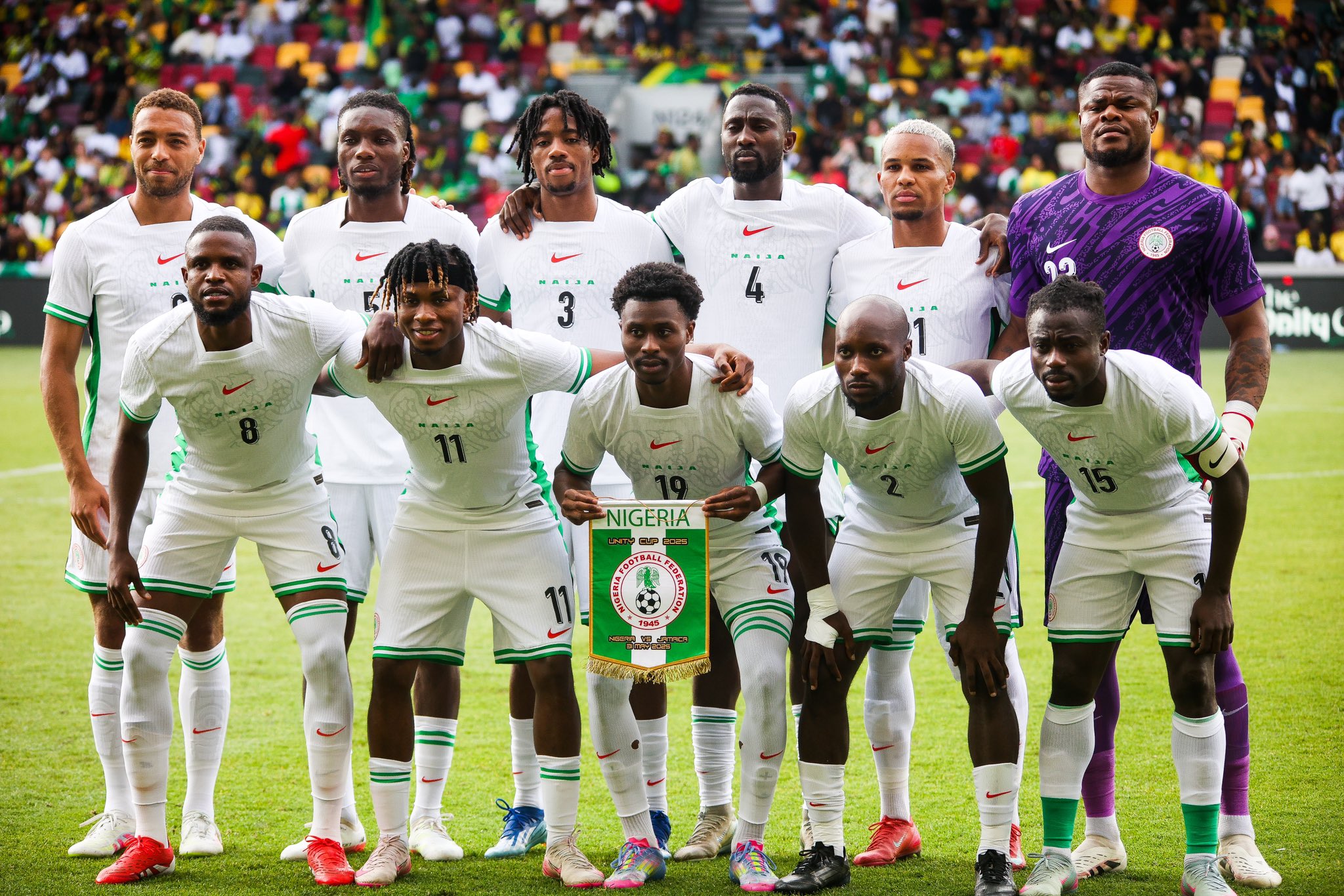The Blue Sharks of Cape Verde have made history as the second-smallest African nation ever to qualify for the FIFA World Cup after a 3-0 home victory over Eswatini sealed their place at the 2026 finals.
Cape Verde, playing in front of a packed 15,000-capacity National Stadium in Praia, topped their qualifying group ahead of continental giants Cameroon, sparking jubilant celebrations across the island nation.
Dailon Livramento opened the scoring early in the second half, reacting quickest to a loose ball inside the six-yard box. Minutes later, Willy Semedo volleyed home a second to give the home side breathing space. Veteran defender Stopira put the result beyond doubt in stoppage time, completing a famous night for Cape Verde.
The win means Cape Verde, with a population of just under 525,000 people, will join Morocco, Tunisia, Egypt, Algeria, Ivory Coast and Ghana as one of Africa’s representatives at the expanded 2026 World Cup in the United States, Canada, and Mexico. Only Iceland (with 353,000 population when they qualified for the 2018 World Cup in Russia) have reached the tournament with a smaller population.
Cape Verde President Jose Maria Neves watched from the stands as the nation achieved what once seemed impossible. The atmosphere in Praia was electric, particularly after a tense first half in which Jamiro Monteiro and Livramento both came close to scoring but were denied by Eswatini goalkeeper Khanyakwezwe Shabalala.
The result also served as redemption for the Cape Verdeans, who missed their first chance to qualify last week after a thrilling 3-3 draw away to Libya. They had fought back from two goals down before seeing a stoppage-time winner controversially ruled out for offside.
Their earlier 1-0 win over Cameroon in June had already placed them in pole position to qualify, and this time, they made it count.
Cape Verde Beneficiaries Of Expanded Quota, Continuity, and Commitment
Shamrock Rovers defender Roberto “Pico” Lopes, one of the team’s most experienced players, credited Africa’s expanded quota at the World Cup as a major factor in their success.
“Traditionally, it’s been difficult to qualify for the World Cup, especially in Africa where you had to finish first [in your group] to have a chance,” Lopes told the BBC before the Libya match. “This time, if you finish first, you’re in. The motivation to be first and hold on to that has been crucial.”
Cameroon, five-time African champions and regular World Cup participants, will now have to settle for the play-offs after finishing four points behind Cape Verde in Group D. The Indomitable Lions were held to a goalless draw at home by Angola in their final game.
Since gaining independence from Portugal in 1975, the island country has steadily developed a reputation for resilience and discipline on the football pitch. Their national team first appeared in the Africa Cup of Nations in 2013, reaching the quarter-finals on debut and repeating the feat a decade later in 2023.
Coach Bubista, a former international defender, has been central to that progress. Since taking charge in January 2020, he has built a cohesive, well-organised team known for its compact defending and fluid attack. His tactical consistency and calm leadership helped guide the Blue Sharks past stronger opponents, including Ghana and Egypt, during their recent Afcon campaigns.
The coach’s faith in the players paid off after the federation kept him in the job despite the team’s failure to qualify for this year’s Afcon in Morocco.
The success is even more remarkable given the challenges Cape Verde faces. With a modest domestic league of only 12 teams, the nation depends heavily on players from its diaspora. Many squad members were born or played abroad, often discovered through personal networks. In fact, Pico Lopes earned his first call-up after being contacted via LinkedIn.
Their top scorer in qualifying, Netherlands-born Livramento, plays for Casa Pia in Portugal’s Primeira Liga, while several others compete in mid-tier European clubs. Despite the lack of global stars, the squad’s unity and commitment have been their biggest strengths.
With the World Cup draw set for December 4 in Washington, DC, Cape Verde’s dream is only just beginning. A nation better known for its beaches and music is now on the football map, ready to take on the world.
© 2025 Naija News, a division of Polance Media Inc. Contact us via [email protected]

.jpeg)





















.jpeg)













 English (US) ·
English (US) ·